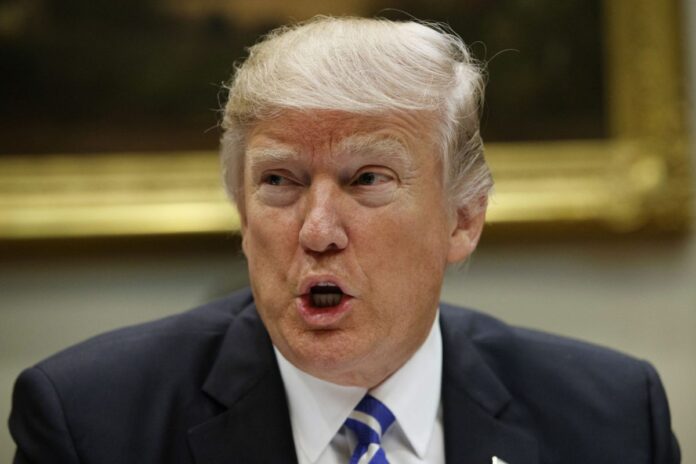Fulfilling another campaign promise that could have a huge impact on the Valley, President Donald Trump will soon notify Congress that he intends to re-negotiate the two decade old NAFTA agreement, according to a draft letter now circulating in Washington.
Fulfilling another campaign promise that could have a huge impact on the Valley, President Donald Trump will soon notify Congress that he intends to re-negotiate the two decade old NAFTA agreement, according to a draft letter now circulating in Washington.
“I am pleased to notify Congress that the President intends to initiate negotiations related to the North American Free Trade Agreement (NAFTA) and its architecture,” said the eight-page letter signed by Acting U.S. Trade Rep. Stephen P. Vaughn.
“We will be consulting closley with Congress in developing our negotiating positions to ensure that they are consistent with Congressional priorities and objectives,” the draft letter says.
During his campaign for president, Trump called NAFTA the worst trade deal “ever” and promised to renegotiate the pact that governs trade between the United States, Mexico and Canada.
While critics have said that the trade pact has resulted in massive job loss in the United States, local experts have credited NAFTA with an unprecedented economic growth spurt in the Rio Grande Valley.
The draft letter being circulated by the Trump administration said U.S. trade with Mexico and Canada has more than tripled, to $1.07 trillion in 2016 from $293 million in 1993.
Although still in draft form, the letter brought a note of hope from U.S. Rep. Henry Cuellar, D-Laredo.
“I’ve been saying all along that we should update NAFTA for the 21st century” Cuellar said in a statement. “I’m glad President Trump has backed down from his campaign rhetoric about eliminating the trade deal entirely, because it has been good for Texas businesses and the entire American economy.”
“This letter that is circulating doesn’t have a lot of specifics yet,” Cuellar continued. “It’s declaring an intent to renegotiate, and some general positive goals. I am open-minded and ready to dive into the details.”
Cuellar did express some concerns over some provisions of the draft letter.
“However, there are some concerning provisions in this letter,” Cuellar said. “Currently, NAFTA member countries can’t put tariffs on goods imported from other members. This letter suggests creating a way to apply temporary tariffs in some circumstances. I am wary that such a provision may be a backdoor way to limit our international trade relationships and risk American jobs.”
The letter spells out few details and sticks with broad principles. But it appears to keep much of the existing agreement in place, including private tribunals that allow companies to challenge national laws on the grounds that they inhibit trade — a provision that critics say allows companies to get around environmental and labor laws.
The draft also contains some provisions that were part of the Trans-Pacific Partnership, a 12-country Asia-Pacific trade agreement negotiated by the Obama administration but rejected by Trump for possibly hurting U.S. workers.
“We’ve got a long ways to go,” said Ohio Democratic Sen. Sherrod Brown. “President Trump made big promises to working people in Ohio, and I’m ready to work with him to deliver on those promises or hold him accountable if he doesn’t.”
NAFTA critic Lori Wallach, director of the left-leaning Public Citizen’s Global Trade Watch, called the letter “a punch in the face.”
If it represents the president’s plan for a revamped NAFTA, she said, “he will have broken his campaign promises to make NAFTA better for working Americans and have a deal that cannot get a majority in Congress.”
But Gary Hufbauer, a senior fellow at the Peterson Institute for International Economics, which advocates free trade, said the letter leaves open the possibility that the Trump administration can take a tougher position once talks with Canada and Mexico begin.
“The language is soft. It’s very diplomatic,” he said. “But it does have the potential of being an umbrella for very hard-hitting demands.”
This report contains information from the Associated Press




